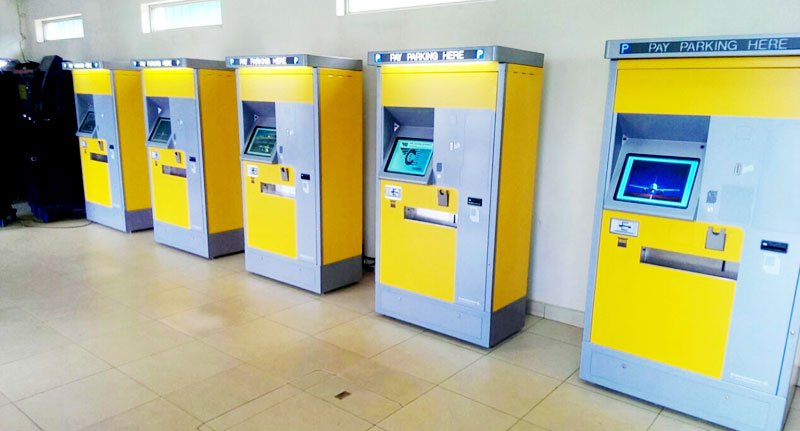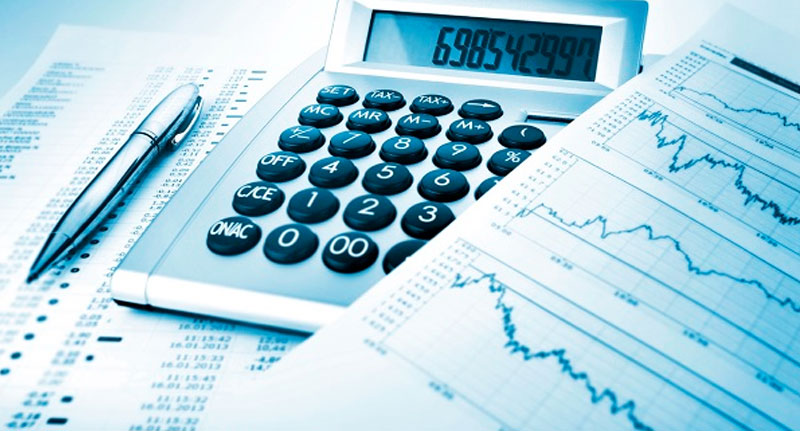The directorate is responsible for financial accounting and management, revenue and debt collection, billing, cash management, costing, budgeting and budgetary control. It is comprised of three departments; Accounting, Finance and Management Accounting.
- The department is responsible for revenue collection, billing and debt management.
- Maximization of Revenue collection and maintaining proper revenue controls
- Adherence to procedures
- Reviewing daily collections
- Issuance of aeronautical charges
- Management in the process of revising the rates
A number of revenues have been introduced in the recent past ie. Security fee, lighting charges, DPHS and aero-bridge charges and Automation of car parks system
Maximizing debt collection
- Use of Credit policy
- Timely and Accurate billing
- Circulation of debtor statements and reminders
- If credit limit is exceeded interest is charged
- Negotiate settlement structures
- Timely delivery of customer invoices
Accurate data capture and Recording of transactions
- Daily, Weekly and monthly reconciliations
- Feedback for corrective actions
- Continuous training of staff
The Departmental Head is the Manager Accounting who is vested with the primary responsibility:
- To provide accurate and timely information on business performance.
- To ensure payment of timely and accurate pay and benefits to staff and Service providers.
- To manage the assets of the Organization.
- To make Statutory returns
- Ensure effective statutory audits
- Stores management
- Human Resources management
To effectively and efficiently carry out these roles, the Department is divided into three fully fledged Sections: The Accounts Section, The Pay and Benefits Section, The Stores Section. The Sections are further integrated through an automated Sun-system accounting package while staff payments and benefits are effectively managed through the Gateway package.
The Accounts Section: - Core functions:
- To make authorised payments.
- To respond to queries concerning payments.
- To maintain the fixed asset bio-data register.
- To prepare final accounts.
Payments Instruments commonly used:
- Cheques
- Cash
- Electronic funds transfer (EFTs)
- Real Time Gross Settlement (RTGS)
- Telegraphic transfer
Important documents and forms used in the Accounts Section for payments, reconciliations and refunds:
- Tax Invoices
- Cheque payment vouchers
- Adjustment Journal vouchers
- Claim forms
- Form 4
- Accountability forms
- Petty cash vouchers
- Banking slips
- Bank statements
The Pay and Benefits Section: - Core functions
- Payment of staff salaries and related allowances, gratuity, bereavement, awards and benefits.
- Payment of top-up allowances to government agencies.
- Preparing all statutory recoveries and their payment to the respective Government Authorities
- Maintaining the staff bio-data.
- Facilitating staff to acquire advances, bank loans, vehicle loans and hire-purchase facilities.
Important documents and forms used in the Pay and Benefits Section to facilitate staff payments, loans and benefits.
- Bio-data form
- Loan application form
- Union form
- Hire purchase form
- Overtime / extra allowance form
The Stores Section: - Core functions
Receive materials from Suppliers; ensure quality, security and safe storage.
Handle the movement and issuance of materials from Stores to end users and off-site locations for quick service delivery.
Manage accountability and control of materials’ movement.
Important documents and forms used in the Stores Section to receive goods, issue materials and initiate payment of goods received:
- Delivery Notes
- Tax Invoices
- Materials Received Notes
- Local Purchase Orders / Contracts
- PP20 Form
- Quality Assurance Certification of goods received
- Contracts Committee Decision on award
- Requisition / issue forms
The department is responsible for budgeting, Management Reports and costing of CAA services.
The Budget Process:
- UCAA uses zero based budgeting. The process commences in December and ends in March of the succeeding year.
- Directorates submit their estimates to the Manager Management Accounting.
- The estimates are discussed and justified in two workshops namely; Budget Managers and Management workshops.
- The draft budget is then submitted to UCAA Board of Directors for approval.
- Then to the Minister of Transport and Housing by the 31st March which is a statutory deadline.
- Budget is implemented after the Minister’s approval.
Management Reporting:
- Management Information System (MIS) Reports are prepared monthly, for internal use only.
- MIS 3 reports on revenues whereas MIS 4 reports on expenditure.
- Budget performance reports are prepared on a quarterly basis
- Explanations for variances are sought from different departments and compiled in the reports.
- The reports are then presented to UCAA Management before submission to the Board.
- The approved reports are sent to the Ministry and Privatization Monitoring Unit (PMU)
Costing of UCAA services:
- The UCAA act requires The Authority to prescribe charges and fees in respect of services on a cost recovery basis. The ICAO policy on Airport charges also emphasizes that Airports users should ultimately bear their full and fair share of the costs of providing the Airport.
- Costs incurred in providing UCAA services must be determined before levying new charges or reviewing existing charges.
To determine the costs, recommendations from ICAO document no. 9082 & 9161 are applied. Costs for each service are then summed up and charges are set or reviewed on a cost recovery basis.


